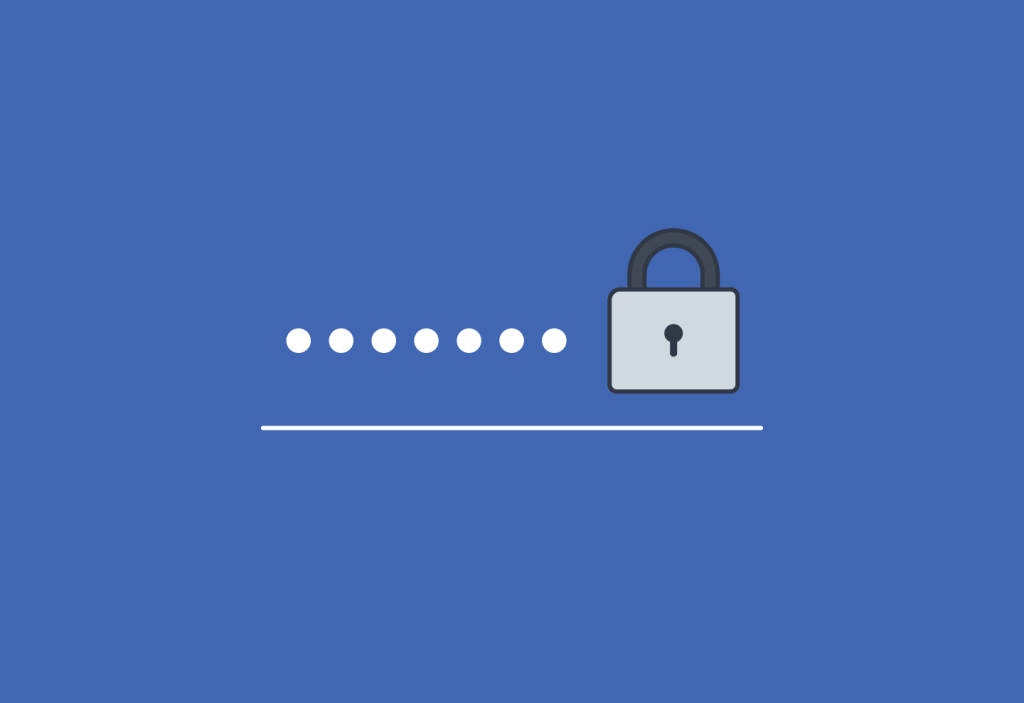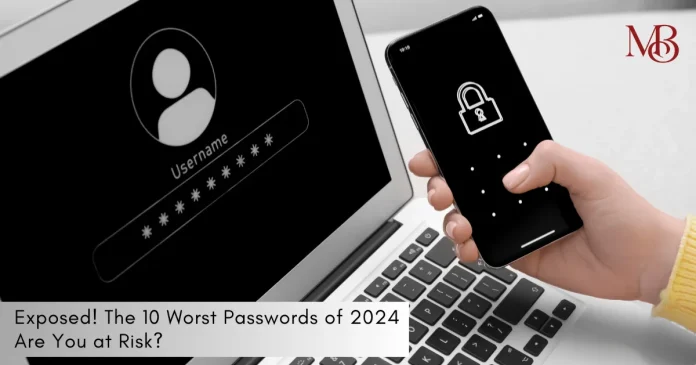Worst Passwords of 2024? Let’s face it, passwords are a pain. They’re hard to remember, annoying to type in, and all too often, not even secure. But here’s the deal: until we all switch to passkeys or some other futuristic tech, we’re stuck with passwords to keep our accounts safe. And right now, hackers are having a field day with predictable, weak passwords.
This blog will explore the Worst Passwords of 2024 and the following:
- The most hackable passwords of 2024 (spoiler: they’re embarrassingly simple).
- Why using strong, unique passwords is non-negotiable.
- Easy tips to create and manage passwords like a pro.
- What you can do to outsmart cybercriminals.
Ready? Let’s make sure your digital life isn’t an open book for hackers.
The Worst Passwords of 2024: Are You Guilty?
Security researchers at anyIP and NordPass analyzed millions of accounts and uncovered the top offenders when it comes to weak passwords. Here are the worst of the worst passwords of 2024:
| Rank | Password | Times Used (in millions) |
| 1 | 123456 | 112 |
| 2 | password | 85 |
| 3 | 123456789 | 50 |
| 4 | qwerty123 | 45 |
| 5 | 12345 | 36.5 |
Let’s break this down:
- 123456: It’s the equivalent of leaving your house key under the welcome mat.
- password: The irony is painful. Using “password” as your password? Come on.
- qwerty123: Just because it’s a little longer doesn’t make it secure.
- 12345: Really? This takes “easy to hack” to a whole new level.
These passwords are not just easy to guess—they’re laughably predictable. Hackers use automated tools that can crack these in less than a second.

Why Weak Passwords Are a Big Problem?
You might think, “Who cares if someone hacks my Netflix account?” But it’s not just about streaming services. Here’s what’s at stake:
- Financial Loss: Hackers can gain access to your bank accounts or online wallets.
- Identity Theft: Your personal information can be sold on the dark web.
- Data Breaches: A weak password on one account can compromise multiple accounts if you reuse passwords.
Think of your password as the lock on your front door. Would you trust a flimsy latch to keep burglars out?
How to Create Strong, Secure Passwords?
The good news: creating a strong password doesn’t have to be complicated. Follow these tips:
- Use a Password Manager: Tools like LastPass, 1Password, or Dashlane can generate and store strong passwords for you.
- Go Long: Aim for at least 12 characters. The longer, the better.
- Mix It Up: Combine uppercase, lowercase, numbers, and symbols.
- Avoid Predictable Patterns: No birthdays, names, or obvious sequences (like “1234”).
- Make It Unique: Use a different password for every account.
Here’s an example:
Instead of: password123
Try: T!m3To$ecure2024!
What Are Passkeys, and Why Are They the Future?
Passkeys are the cool new kid on the block. They’re secure, easy to use, and don’t require you to remember anything. Here’s how they work:
- What Are They?: A passkey is a digital credential tied to your device. You don’t need to type anything—just authenticate with your fingerprint or face.
- Why Are They Secure?: Passkeys are randomly generated and can’t be guessed or reused.
- Where Can You Use Them?: Many platforms, like Google and Apple, already support passkeys.
Want to try it? Check out Passkeys.io for a demo.
Managing Passwords: Tips and Tools
Managing multiple strong passwords might sound overwhelming, but it’s not if you have the right tools. Here’s how to stay on top of it:
| Tool | Features | Best For |
| LastPass | Password generator, vault storage | Beginners |
| Dashlane | Security alerts, dark web monitoring | Advanced users |
| 1Password | Family sharing, cross-device sync | Families and teams |
- Enable Two-Factor Authentication (2FA): Always add a second layer of security.
- Regular Updates: Change your passwords every six months.
- Stay Alert: Watch out for phishing emails and scams.
In the digital age, where our lives are increasingly intertwined with technology, the importance of robust cybersecurity practices cannot be overstated. Passwords, despite their occasional inconvenience, remain our primary safeguard against unauthorized access and data breaches. By creating strong, unique passwords for each of our online accounts, we significantly reduce the risk of falling victim to cyberattacks.
You might also like: How Kindness is Fueling a Silent Health Crisis in India by Feeding Pigeons
Furthermore, the advent of passkeys offers an even more secure alternative to traditional passwords. Passkeys leverage biometric authentication and cryptographic keys to provide a seamless and highly secure login experience. By adopting passkeys wherever possible, we can further fortify our defenses against hackers and cybercriminals.
You might also like: AI-Driven Multidisciplinary Innovation: The Future of Creativity and Problem-Solving
Remember, taking proactive steps to enhance your cybersecurity posture is an investment in your future. By diligently managing your passwords and embracing innovative security solutions like passkeys, you can safeguard your sensitive information and enjoy a safer online experience. Don’t wait until it’s too late – take action today to protect yourself from the ever-present threat of cybercrime and the worst passwords of 2024.
FAQs
1. How often should I change my passwords?
Every six months or immediately if you suspect a breach.
2. What’s the best way to store passwords securely?
Use a trusted password manager. Avoid writing them down or saving them in plain text.
3. Are biometric logins safer than passwords?
Yes! Fingerprints and facial recognition are harder to hack than traditional passwords.
4. Can hackers break into accounts even with strong passwords?
It’s rare but possible. Always enable 2FA for an extra layer of security.


